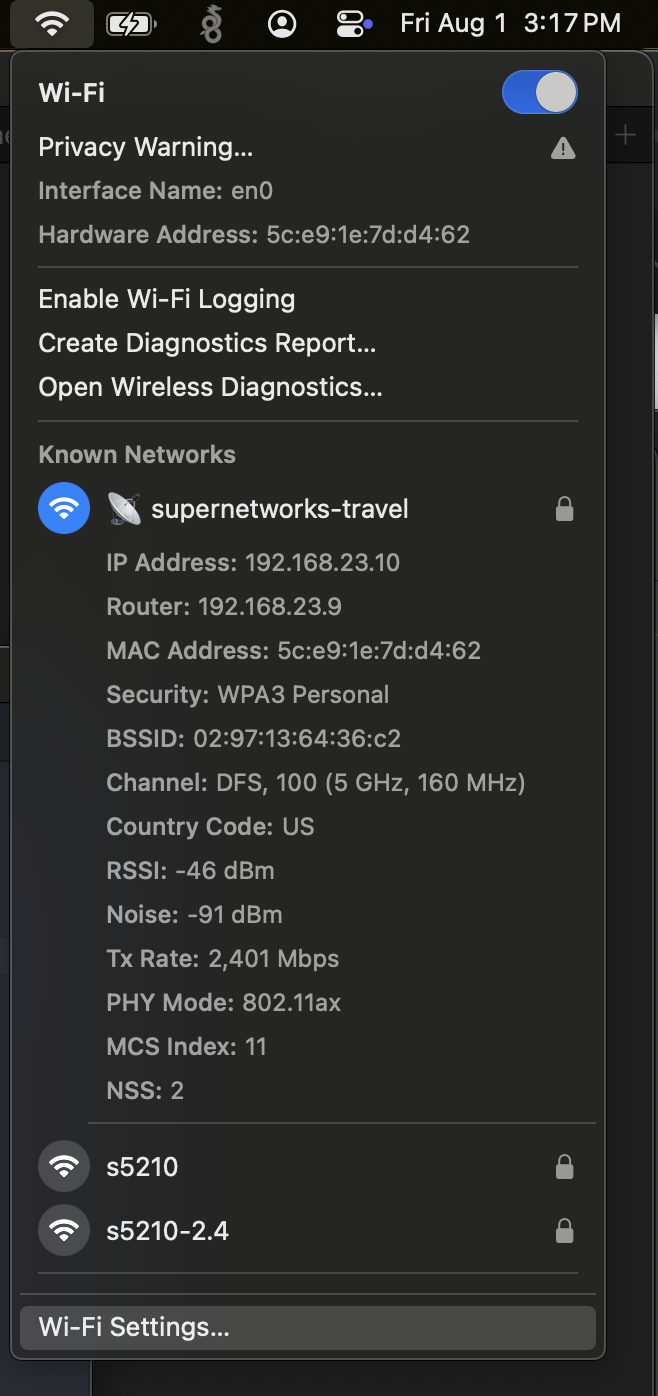Real-World Test: PoE+ Router Pushes 3+ Gbps Simultaneously on WiFi 6 & 2.5GbE
Our new SPR PoE+ router, built on the Raspberry Pi CM5 platform, delivers great performance. In this test, we pushed packets to the limits by running simultaneous throughput tests on both the 2.5 Gbps Ethernet port and a 160 MHz WiFi 6 connection, achieving a combined throughput of over 3 Gbps.
The CM5 exposes a single Gen 2 PCIe lane (Gen 3 can be configured). The SPR PoE+ router splits the lane with a Gen 2 2:1 ASM1182e packet switch to share between the WiFi AP and 2.5GbE port, and a key question has been how the packet switch setup fares under real world conditions.
Hardware Overview
The SPR PoE+ router features:
- CPU: Raspberry Pi CM5 Carrier Board with CM5104032 (4GB RAM, 32GB eMMC, WiFi)
- Connectivity:
- MT7916 3x3 802.11AX WiFi 6
- 1x 1Gbps Ethernet port, 1x 2.5Gbps Ethernet port
- 2x USB 3.0 ports, 1x USB 2.0 port
- Power: PoE+ (802.3at) capable on 2.5 Gbps port, USB PD Power
- Antennas: FlexMIMO Antennas from Laird
Test Setup
Our test configuration consisted of:
- WiFi Client: M2 MacBook Pro with 2 spatial streams and WiFi 6 capability
- Wired Endpoints: Two routers with R8125 2.5GbE cards
- Network Path: Connected through two separate 2.5 Gbps switches with jumbo frames enabled on both ends
- WiFi Distance: 6 feet between the MacBook and AP
- WiFi Configuration: 160 MHz channel width, 2 spatial streams, WPA3, DFS Channel 100; RSSI -45

